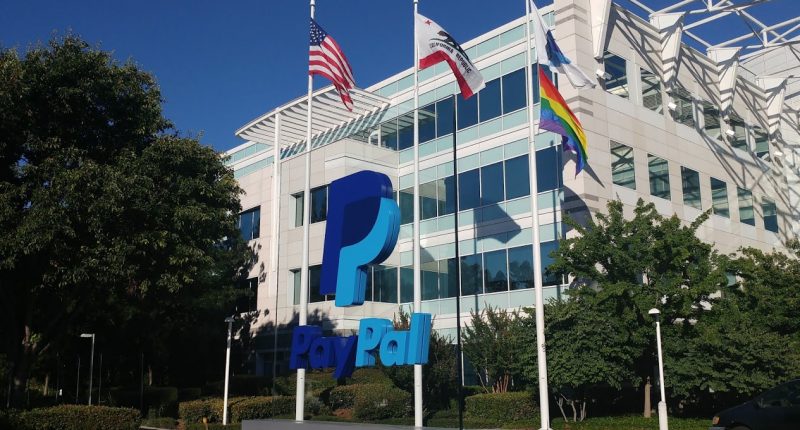PayPal has launched a new feature called ‘Pay with Crypto’ that allows merchants to accept cryptocurrency as payment. Customers can use over 100 types of digital currencies (including Bitcoin, Ethereum, USDC, and others) through popular crypto wallets like Coinbase Wallet, MetaMask, Phantom, Binance, Kraken, OKX, and Exodus. The feature is expected to become available to US merchants in the coming weeks, except in New York (where it is still awaiting regulatory approval).
When a customer chooses to pay with crypto, PayPal instantly converts the payment into US dollars or PayPal USD (PYUSD), its own stablecoin backed by the US dollar. It means under this newly introduced method, merchants will receive the funds in a stable form without having to handle or hold any cryptocurrency.
According to the fintech giant, the new service is designed to help merchants tap into the fast-growing digital asset market while avoiding the risks of price volatility. Because crypto payments are automatically converted into PYUSD or fiat currency at checkout, merchants are protected from the fluctuating value of cryptocurrencies. The system also offers near-instant settlement, helping businesses receive their money faster compared to traditional international payment systems.
One of the key points for merchants is the reduced transaction fee. The company is offering a flat fee of 0.99% for crypto transactions, which is significantly lower than the typical 3-10% fees often charged for international card payments. This special rate will stay in place until at least July 31, 2026. After that, the fee might go up slightly. Additionally, merchants who choose to keep their funds in the form of PYUSD within their PayPal account can earn an annual gain of 4%. Meanwhile, on the consumer side, the payment experience is similar to using a digital wallet or scanning a QR code.
This crypto feature also complements the recently launched ‘PayPal World’ platform, which aims to connect different payment systems across borders. Through this initiative, the company is working to link its services with other major platforms like India’s UPI, China’s Tenpay Global, Latin America’s Mercado Pago, and its own network, including Venmo.
However, the latest crypto payment feature comes with certain limitations. Since digital assets are not insured by the FDIC or SIPC, both users and merchants should be aware of the risks involved in holding or transacting in cryptocurrency. The company also notes that while the system is designed for convenience and security, blockchain-based payments are irreversible once confirmed. This becomes more significant as, earlier this year, the company was fined $2 million after a 2022 data breach exposed personal details of about 35,000 users due to weak cybersecurity.
The developments come at a time when the crypto market is gaining momentum, backed by recent economic and political changes. For example, President Trump’s pro-crypto actions, like easing regulations and setting up a National Crypto Reserve, are creating a supportive environment for digital assets. At the same time, expectations of US interest rate cuts are driving interest in alternative assets like crypto.
The Tech Portal is published by Blue Box Media Private Limited. Our investors have no influence over our reporting. Read our full Ownership and Funding Disclosure →






